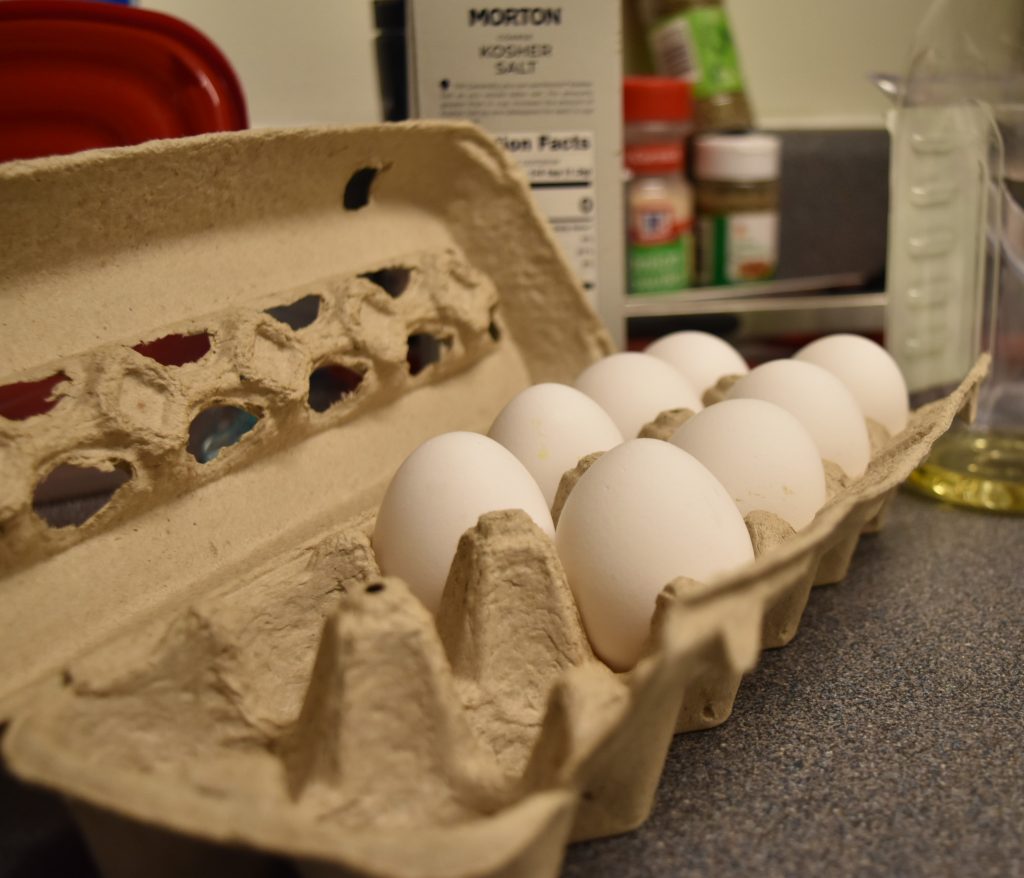Alongside three other representatives, Josh Riley, who represents a congressional district anchored around Binghamton and Ithaca, recently introduced the Lowering Egg Prices Act of 2025 to combat high egg prices nationwide.
The bill would eliminate certain refrigeration restrictions and allow surplus “broiler hatching eggs,” normally used to hatch chicks, to be pasteurized into egg products. It takes around five days for farmers to know which eggs are suitable for hatching, according to a Feb. 20 letter from the National Chicken Council, a trade association that advocates for the poultry industry, to the U.S. Food and Drug Administration.
Eggs that will not be incubated must be discarded under regulations implemented in 2009 that require all eggs to be refrigerated at or below 45 degrees Fahrenheit beginning 36 hours after the time of lay to prevent bacterial growth.
Under the new bill, these surplus eggs will become breaker eggs, which are pasteurized and processed into products like mayonnaise and salad dressing or bought by food service providers. The intention is to prevent egg waste, increase egg supply and lower prices.
“Families across Upstate New York are struggling to make ends meet because the grocery bills are too high,” Riley said in a press release. “My Lowering Egg Prices Act is a common-sense, bipartisan bill to take unnecessary regulations off the books, put hundreds of millions of eggs on the market, and lower your grocery bill.”
The bill was introduced alongside Pat Harrigan, a Republican of North Carolina; Dusty Johnson, a Republican of South Dakota; and Kristen McDonald Rivet. a Democrat of Michigan. They say these regulations are not necessary, as the pasteurization process kills bacteria that could harm consumers.
Egg prices have steeply risen in recent months, reaching a high of $8.17 per dozen on average in early March. These price hikes stem from the spread of avian flu in poultry farms across America, forcing farmers to put down “tens of millions of egg-laying chickens” to contain the disease, according to NPR.
Due to the commercialization of agriculture in recent decades, just a few poultry farms in the country make up a large portion of egg production. Because of this, when a farm becomes infected, the effect on the supply chain is significant. More than 40 commercial egg farms faced outbreaks in January and February, leading to the deaths of around 28 million chickens — equivalent to nine percent of the country’s “commercial egg-laying flock.”
The National Chicken Council proposed this solution in their letter last month, arguing that surplus broiler-hatching eggs should be used in pasteurized egg products. The petition says about 360 million broiler eggs are not placed for hatching annually and consuming pasteurized broiler eggs poses minimal health risks.
On March 19, Riley, the bill’s original co-sponsors and 11 other members of Congress signed a letter to Dr. Sara Brenner, the acting commissioner of the Food and Drug Administration, in support of the council’s February 2025 petition.
“The rule requires the broiler industry to discard eggs that don’t meet certain refrigeration requirements,” the letter read. “Those requirements make sense for table eggs, which are raw products, but the rule makes no sense for broiler eggs, which are pasteurized.”
“The FDA and the U.S. Department of Agriculture said as much in a 2020 joint risk assessment, which concluded that broiler eggs present an extremely low public risk due to the ‘extremely high pasteurization efficiency’ of the egg-breaking pasteurization process,” it continued.
As part of his commitment to work “across the aisle to take on special interests, lower costs, and make life easier for Upstate New Yorkers,” Riley has recently backed other bills that would support dairy and poultry farmers in upstate New York.
“There’s moms and dads across upstate New York who can’t afford to make their kids an omelette before they go off to school,” Riley said in a Facebook post announcing the bill. “There’s seniors across upstate New York on fixed incomes and cutting back on groceries to pay for utilities and prescriptions. And you want to hear the worst part of it all? Instead of doing something to help, Washington has made it worse with nonsense regulations.”



